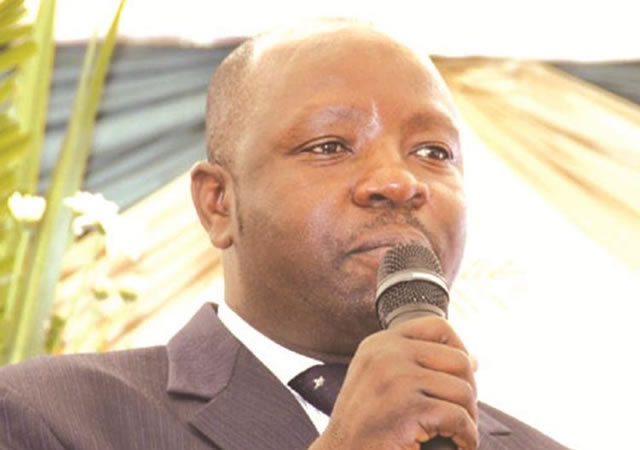Felex Share Herald Reporter
Political parties championing resource nationalism are gaining popularity in Africa’s body politic.
By embarking on successful land reforms and empowering Zimbabweans through indigenisation and empowerment laws, Zanu-PF has remained the dominant player in Zimbabwe’s politics.
Now, other African parties of like mind are following suit.
Barely eight months after its formation, South Africa’s Economic Freedom Fighters — led by firebrand politician Julius Malema — made tremendous inroads in the May 7, 2014 polls with more than one million votes.
The party, which wants to nationalise mines and banks and pursue land reforms, yesterday had 6,2 percent of the vote with most ballots counted.
The result made EFF the third largest political party in South Africa and is on course to get around 20 seats in that country’s parliament.
A “political infant”, the EFF also scored big in North West province where it is now the official opposition to the ruling African National Congress party, which had 62,4 percent of the national vote at the time of writing.
Resource nationalism, analysts say, is finding currency among indigenous Africans who do not have much to show despite decades of independence.
Guinea, the DRC, Zambia, Ghana, Botswana and Namibia have taken stern measures on their mineral resources by raising State participation to ensure their people benefit more.
Analyst Dr Nhamo Mhiripiri said empowerment was an issue close to the hearts of many black people.
“Cde Malema and his supporters are speaking the language of Zanu-PF, which rings clear and true to ordinary people,” he said. “With time the ANC will have a formidable competitor whose ideology is empowering historically marginalised South Africans. This is the kind of ideology presented to the people by Zanu-PF.”
Dr Mhiripiri said the ANC had been liberal in its outlook.
“It speaks the same language (as Zanu-PF) but they seem liberal in implementation and are not as aggressive. African politicians, and Cde Malema in this case, are taking a cue from Zimbabwe that the willing-buyer willing-seller model for land reform does not work.”
He added: “Indigenisation and empowerment ideas started long back in Africa but one person who has aggressively implemented the ideas is President Mugabe, and many are beginning to like the idea. The ideas have been articulated before but they have not been put into action.”
National University of Science and Technology dean of Communication and Information Science, Dr Lawton Hikwa, said the “long-yearned desire” in Africa’s political struggle was that of owning resources.
“Malema is pushing that agenda and that explains why he has become an attraction,” he said.
“He is pursuing the same agenda as Zimbabwe, albeit in a different environment. People want to own their resources as evidenced by their support for Zimbabwe’s indigenisation and empowerment.
“It is a process, not an overnight thing and with African governments interacting, having a meeting of minds, they will achieve those ideas eventually.”
Zimbabwe’s indigenisation policy requires foreign firms worth at least US$500 000 equity to cede a 51 percent stake to locals.
Midlands State University dean of International Relations Mr Christopher Gwatidzo said there was growing realisation among African countries that “flag independence” did not pay.
“What is coming out is that the six percent Malema got are votes from former ANC members, meaning there are issues South Africans expected to have been solved by now but have not.
“The architecture of the economy is not in favour of blacks and Malema’s points resonate with original ideals you find in the ANC.”
The wave is spreading across Africa.
In 2011, Namibia declared all minerals — except zinc and fluorspar — “strategic” and handed over all exploration rights to newly-created State mining arm, Epangelo Mining Limited. Foreign investors must partner with Epangelo if they want to exploit any strategic mineral in Namibia.
Other mineral-rich countries such as Guinea, the DRC and Zambia are pushing through wide-ranging policy reforms.
The DRC which holds some of the world’s largest deposits of copper and cobalt, is amending its mining code to enable the State to hold no less than 35 percent equity.
Guinea, with probably the world’s largest deposits of bauxite and iron ore, has a law that gives the State 35 percent equity in mining projects. The country is also reviewing all mining contracts with a view to raising State participation and boosting mining revenues.
Zambia wants no less than 35 percent of all mining projects and reforms to this end are underway.
Ghana, Africa’s second-biggest gold producer, has announced a review and possible renegotiation of all mining to ensure mining profits are “maximised for the good of the country”.
Nigeria may renegotiate offshore oil contracts, because “unfair fiscal terms” are costing the country billions of dollars annually in revenue.
Beyond Africa, India two years ago started working on modalities for a new levy on minerals extracted from its forested regions.
In 2011, Peru enacted a new mining tax and royalty regime using the example of Chile, which in 2010 enacted measures to base levies on net mining income.
Mongolia, Peru, Indonesia, Poland and the United States increased taxes and royalties, while others have introduced or are in the process of introducing export levies on raw minerals.
Indonesia capped foreign ownership at 49 percent after 10 years of operations. In Mongolia, foreign ownership of strategic minerals is capped at 49 percent.


























